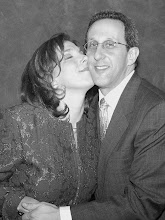What is the Jewish "thing to do" in the event a person is terminally ill and in severe pain?
I would hope the answer would be to comfort that person as best as medically possible, including pain killers and whatever else is medically available while not in any manner shortening or terminating the life.
What is the Jewish "thing to do" in the event a person is terminally ill and in severe pain and that person desires to terminate their life?
I would hope the answer would be that as Jews, only G-d should give and take life. Note that my answer states should since we are all aware of humankind taking life for various reasons.
What is the Jewish "thing to do" in the event a person is terminally ill and in severe pain, and the person has a living will that states that he/she wants to be medicated into a coma and that no medical efforts should be made to sustain the comatose life?
Is medicating someone into a coma and following a living will that directs such conduct the equivalent of suicide?
What is the difference between assault with a deadly weapon and medically inducing a coma for no known medicinal (or should I say life sustaining) purpose?
Is the practice of medicine only for life sustaining purposes? If so, is an abortion (elective, as opposed to protecting the life of the mother) a medical procedure?
Should the Doctor's oath "First do no harm" or some variation to that phrase be modified to be something more akin to the "best interests of the patient". If the patient would rather cease living in pain than continue in pain and the patient's intent is clear and unequivocal either through a writing or some form of spoken living will, who is to decide what is in the best interests of that patient? The Doctor? A Judge? A legislator? A relative? An ethicist? A Religious code or law?
According to one web-site on the issue, suicide in Jewish law is forbidden.
"A person's soul is not his to extinguish, and he cannot not direct someone else to assist him in ending his life. Regarding assisted suicide and the activities of Kervorkian, Jewish law is clear and definite. Under no circumstances may a doctor directly kill, or indirectly provide the means for suicide. Any form of active euthanasia is strictly prohibited and condemned as plain murder. The fact that the patient is in unremitting pain and pleads for assistance in ending his life does not change the law. Murder is one of the three cardinal sins prohibited by the Torah, and anyone who kills a dying person is liable to the death penalty as a common murderer.
Jewish law maintains that one has no absolute ownership of one's body. We are given a body for a fixed time. We are obliged to guard it for safe-keeping and to make rational decisions about its care. We have no rights to tamper with life except for the purpose of preventing its destruction or loss.
Life, be it for 120 years, or a split second, is itself of infinite value. It has intrinsic value, mystical, and unfathomable. Therefore the quality of life during any one moment does not alter its infinite value.
Terrible "mistakes" have been made which cost people their lives. A relative of man was in a very bad auto accident (in which 3 of the occupants were killed). She was in a coma and the doctors wanted to "pull the plug." The family resisted, and today this woman is 100 percent alive and healthy.
Even the removal of a pillow when a person is in death throes, thereby hastening death, is forbidden. (Rabbi Moses Isserles, Code of Jewish Law)
Having said this, there are certain conditions where it may be permitted to withhold certain medical treatments that would otherwise prolong life."
That being said, there are many shades of grey (gray) concerning these issues. Life and life's decision are not always etched in rabbinical black and white answers.
Shalom. Jeremy
Thursday, January 19, 2006
Subscribe to:
Post Comments (Atom)

No comments:
Post a Comment